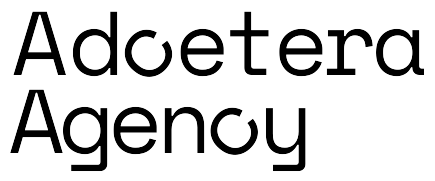Features, Benefits, and Characteristics of Digital Media
- DA
- June 17, 2024
- Edited 1 year ago
Table of Contents
Digital media has transformed how we communicate, consume information, and entertain ourselves. This article delves into its core characteristics, typical features, and advantages. Read on to explore the exciting world of digital media and understand why it is so influential.
What is Digital Media?
Digital media encompasses all content created, stored, and distributed using digital technologies. It includes text, audio, video, and graphics accessed through various devices such as computers, smartphones, and tablets.
Characteristics of Digital Media
Interactivity
Digital media is inherently interactive. Unlike traditional media, which is passive, digital media allows users to engage with content. They can click, comment, share, and participate in real time. This interaction enriches the user experience and fosters a deeper connection with the content.
Ubiquity
Digital media is everywhere. With the proliferation of internet-connected devices, digital media can be accessed from almost anywhere at any time. This ubiquity ensures that information and entertainment are always within reach.
Personalization
One of the standout characteristics of digital media is its ability to be personalized. Algorithms and data analytics tailor content to individual preferences. This customization enhances user satisfaction and engagement.
Immediacy
Digital media delivers content instantly. Whether it’s news updates, social media notifications, or streaming services, the speed at which information is disseminated is unparalleled. This immediacy keeps users informed and entertained in real time.
Multimedia Integration
Digital media seamlessly integrates various forms of content. Text, images, audio, and video can be combined to create rich, engaging experiences, which is a significant advantage over traditional media formats.
Typical Features of Digital Media
Social Sharing
Digital media platforms often include social sharing features. Users can easily share content across multiple social networks, expanding the reach and impact of the content.
Analytics and Metrics
Digital media provides detailed analytics and metrics. Content creators can track engagement, measure performance, and gain insights into user behavior. These metrics are invaluable for refining strategies and improving outcomes.
Content Management Systems (CMS)
CMS platforms facilitate the creation, management, and distribution of digital media. They provide user-friendly interfaces and tools that streamline content production and publication processes.
Search Engine Optimization (SEO)
SEO is integral to digital media. Optimizing content for search engines improves visibility and attracts organic traffic. Keywords, meta descriptions, and backlinks are essential to an effective SEO strategy.
User-Generated Content
Many digital media platforms encourage user-generated content. Reviews, comments, and social media posts contribute to the richness and diversity of the content. This participation fosters a sense of community and enhances credibility.
Advantages of Digital Media
Cost-Effectiveness
Digital media is often more cost-effective than traditional media. Production and distribution costs are lower, and digital campaigns can be scaled to fit any budget. This affordability makes digital media accessible to businesses of all sizes.
Global Reach
Digital media has a global reach. Content can be accessed by anyone with an internet connection, breaking down geographical barriers. This international audience provides opportunities for expansion and growth.
Measurable Results
Digital media’s significant advantage is its ability to measure results. Detailed analytics allow businesses to track their campaigns’ success, identify improvement areas, and make data-driven decisions.
Enhanced Engagement
Digital media fosters higher levels of engagement. Interactive content, social sharing, and personalized experiences keep users engaged and invested, which can lead to increased loyalty and brand advocacy.
Flexibility and Adaptability
Digital media is highly flexible and adaptable. Content can be easily updated, modified, or repurposed to meet changing needs and preferences. This adaptability ensures that digital media remains relevant and practical.
Conclusion
Digital media has revolutionized the way we interact with content. Its characteristics, features, and advantages make it an assertive communication, marketing, and entertainment tool. Businesses and individuals can achieve greater reach, engagement, and success by understanding and leveraging digital media.
At Adcetera, we specialize in helping you harness the power of digital media. Our team supports you whether you need help with content creation, SEO, or digital marketing strategies.
Engage with us today to explore how we can elevate your digital media presence. Share your thoughts in the comments, share this post, or visit our website for more information. Let’s transform your digital media strategy together.
Read More:
Digital Media Specialist

